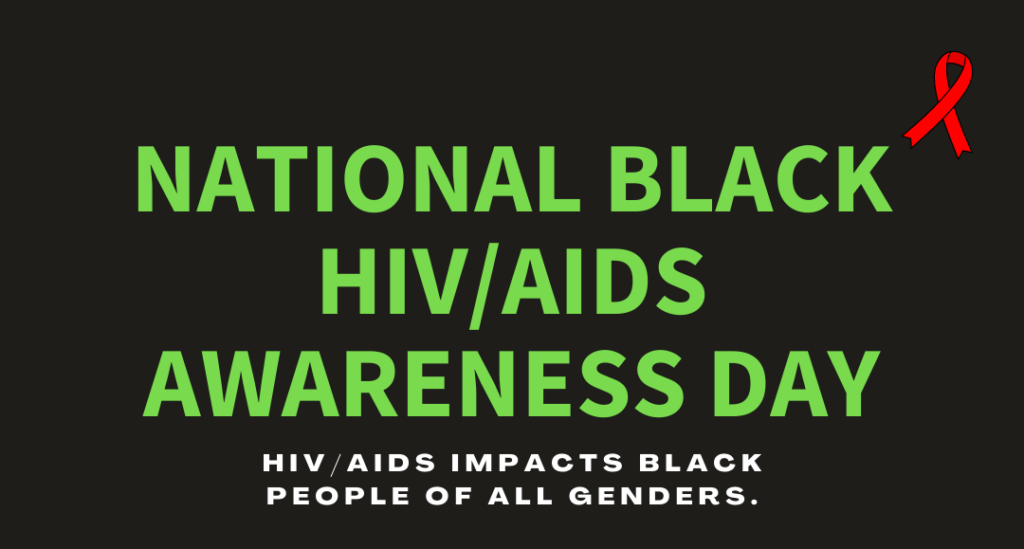
||||
Explore TransLash's Guide to National Black HIV/Aids Awareness Day, through a trans-affirming lens.
Every year on February 7th, National Black HIV/AIDS Awareness Day (NBHAAD) (NBHAAD) reminds us of the progress made in HIV prevention, testing, and treatment; but we still have more to go.
The first National Black HIV/AIDS Awareness Day took place in 1999, as a grassroots-education effort to raise awareness about HIV and AIDS prevention, care, and treatment in communities of Black and BIPOC people.
What we at TransLash believe is that centering the lives, leadership and needs of Black transgender people is the only way to end the HIV/AIDS epidemic.
While we celebrate the Black LGBTQ+ community, we also acknowledge the reality that HIV/AIDS continues to disproportionately affect us.
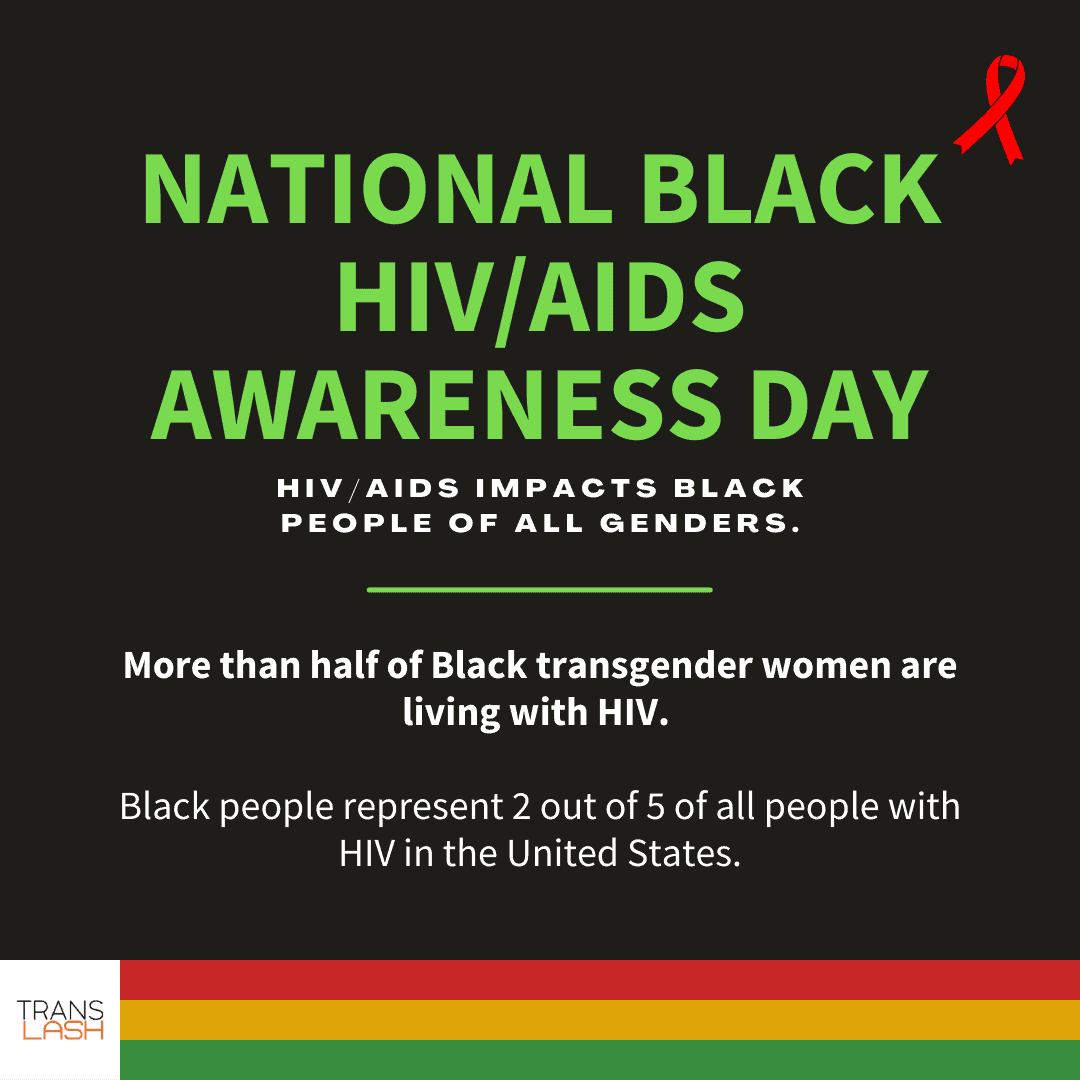
Despite medical advancements, Black LGBTQ+ individuals – especially Black gay, bisexual, and men who have sex with sex, Black transgender women, and nonbinary folks – face higher rates of HIV, systemic barriers to healthcare, and stigma within society and the healthcare system.
Key HIV/AIDS Statistics
Black communities have made great progress in reducing HIV infection. Yet racism, discrimination, and mistrust in the health care system may affect whether Black people of all genders seek or receive HIV prevention services. These issues may also reduce the likelihood of engaging in HIV treatment and care.
- More than half of Black transgender women are living with HIV.
- Black people represent 2 out of 5 of all people with HIV in the United States.
- In 2022, 57% of Black adults reported having been tested for HIV at least once—a higher percentage than Latino (44%) and White adults (32%), highlighting the community’s proactive approach to health despite ongoing disparities.
These statistics do not live in a vacuum; they represent real lives.
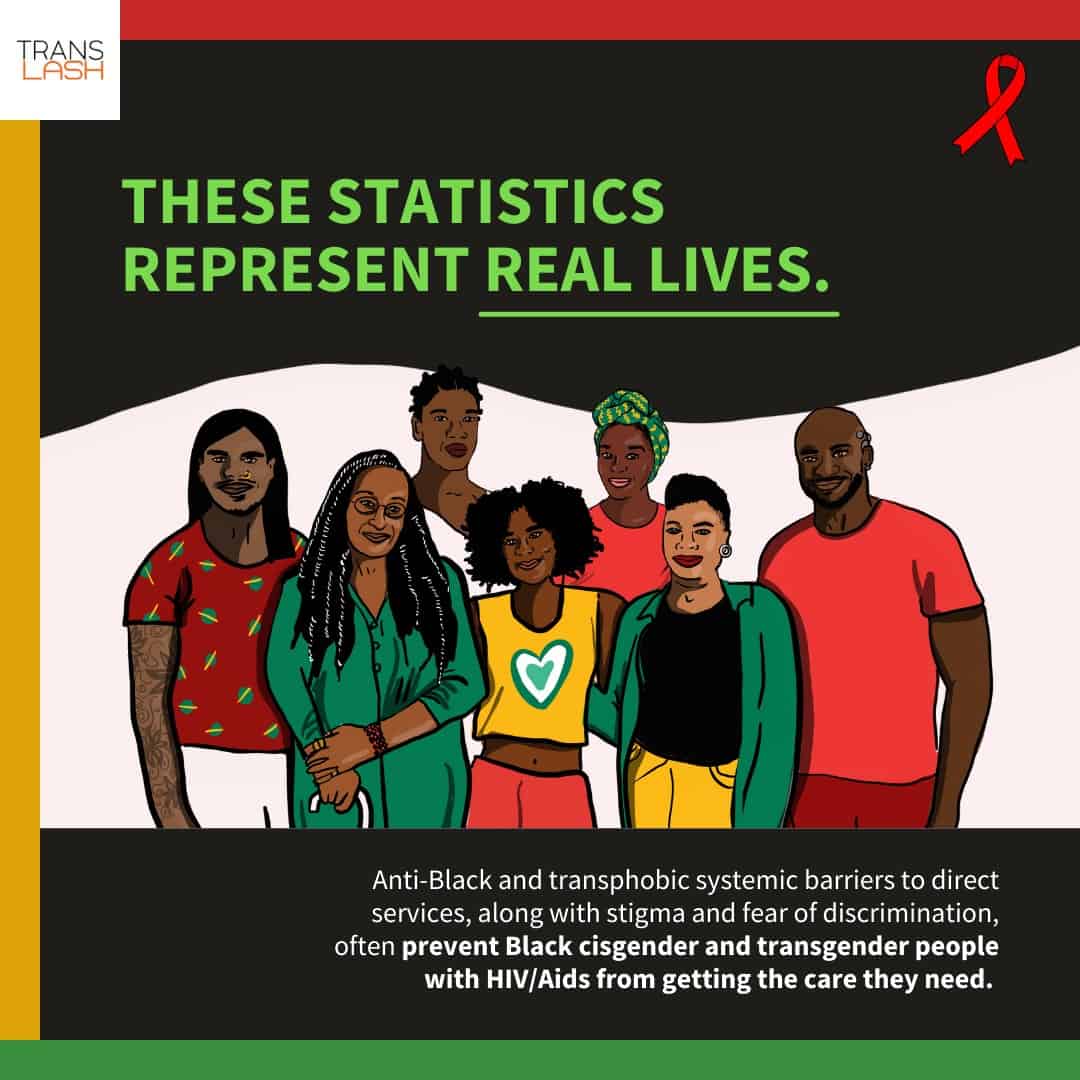
HIV doesn’t spread because of identity, it spreads due to barriers created by racism, homophobia, transphobia, and healthcare discrimination.
Anti-Black and transphobic systems of oppression create barriers for Black trans & TGNC people from getting tested, as well as prevent many Black transgender & TGNC people living with HIV/AIDS from getting the critical care they need. Black LGBTQ+ people often face higher rates of economic and housing insecurity, which makes it harder to prioritize healthcare.
Celebrating Black Trans HIV Advocates
The fight against HIV/AIDS has been marked by the tireless efforts of countless advocates. Among these, Black trans advocates have played a crucial role, not only in raising awareness but also in shaping policies and providing support to communities disproportionately affected by HIV/AIDS.
Their work, deeply rooted in personal experience and a profound commitment to justice, offers invaluable lessons and inspiration. This section honors the contributions of notable Black trans HIV advocates, emphasizing their impact and the ongoing need for inclusive, intersectional advocacy.
Notable Advocates

Miss Major Griffin-Gracy: A pioneering figure, Miss Major’s advocacy spans decades, focusing on the rights and health of trans women of color. Her leadership in the struggle against HIV/AIDS has been instrumental in fostering a more inclusive approach to healthcare and support services.

Dee Dee Ngozi Chamblee: As the founder of LaGender Inc., Chamblee has dedicated her life to the empowerment of the trans community, with a special focus on HIV/AIDS education and prevention. Her work is a testament to the power of community-led initiatives in addressing health disparities.

Cecilia Chung: Chung’s advocacy work, particularly with the Transgender Law Center, has significantly contributed to improving access to healthcare for trans people living with HIV. Her efforts underscore the importance of legal and policy frameworks that respect and protect the rights of all individuals.
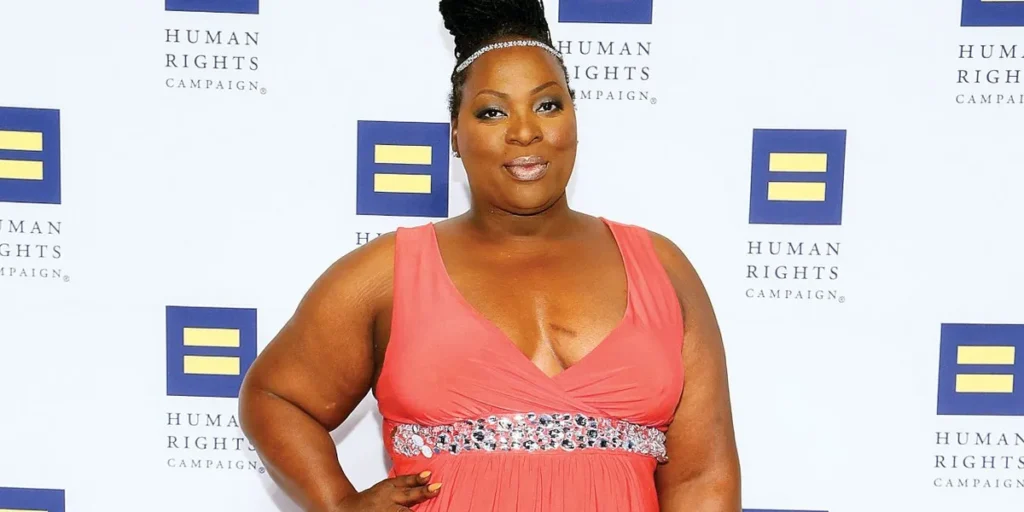
Tori Cooper: As a leading voice in the Human Rights Campaign’s Transgender Justice Initiative, Cooper’s work in HIV health and advocacy showcases the importance of representation and leadership from within the community to effect meaningful change.
Toni Newman: A Case Study in Leadership and Advocacy
Toni Newman stands out for her exceptional contributions to HIV advocacy and her dedication to justice for the Black trans community. As a former acting Executive Director of the Black AIDS Institute and the director of NMAC’s Coalition for Justice and Equality Across Movements, Newman’s leadership has been pivotal in bringing attention to the intersectional nature of HIV/AIDS challenges.
Her autobiography, “I Rise–The Transformation of Toni Newman,” not only narrates her personal journey of transformation but also serves as a rallying call for empathy, understanding, and action in the fight against HIV/AIDS.
The stories of these advocates are not just tales of individual bravery and resilience; they are powerful reminders of the ongoing fight for health equity and the critical role of advocacy in achieving it.
Black trans HIV advocates have shown that change is possible when communities come together to demand justice, care, and respect for all. Their legacy is a beacon of hope and a call to action for future generations to continue the fight against HIV/AIDS with compassion, courage, and unwavering commitment to equality.
The good news is that we can end the HIV/AIDS epidemic by 2030.
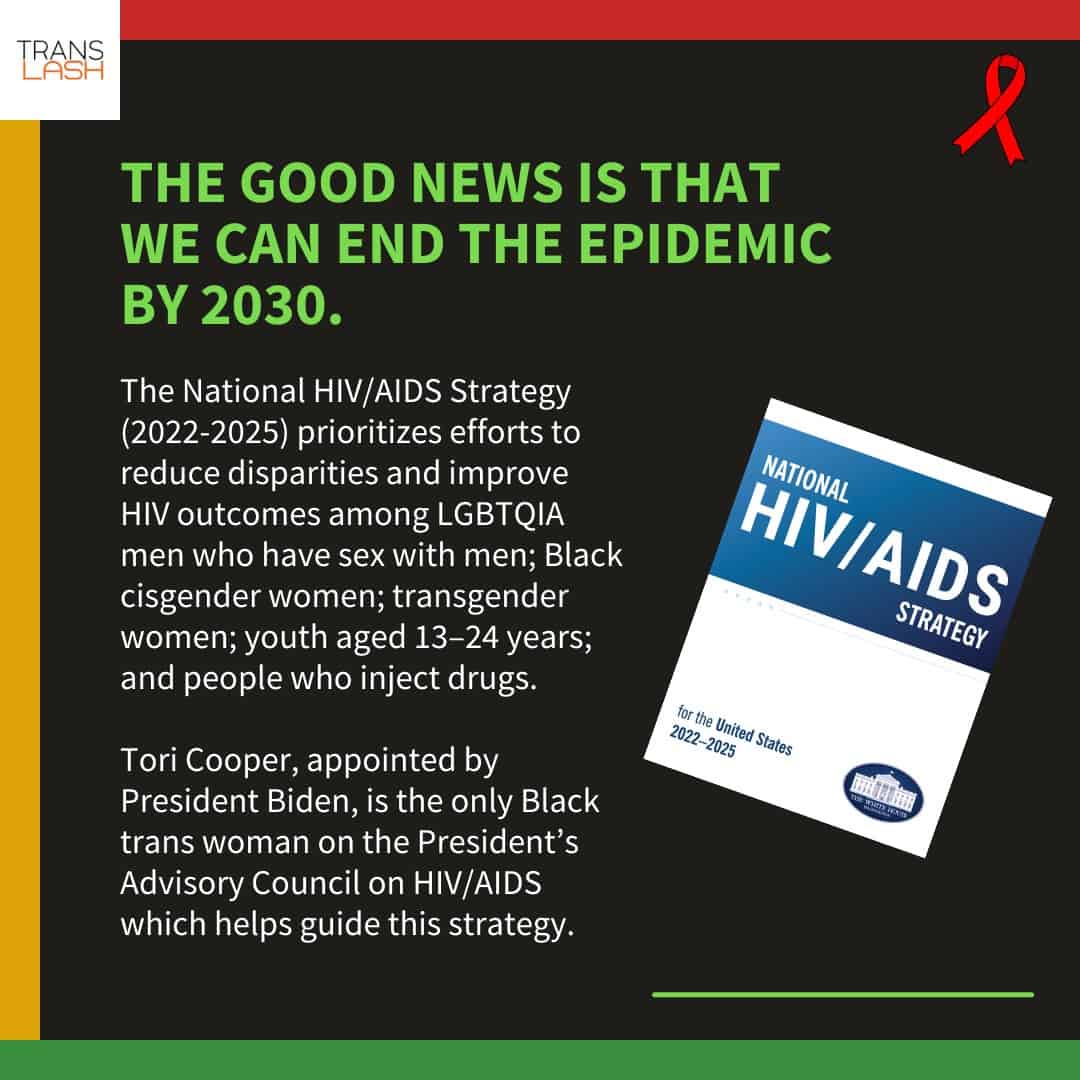
The National HIV/AIDS Strategy (2022-2025) prioritizes efforts to reduce disparities and improve HIV outcomes among LGBTQIA men who have sex with men; Black cisgender women; transgender women; youth aged 13–24 years; and people who inject drugs.
Tori Cooper, appointed by President Biden, is the only Black trans woman on the President’s Advisory Council on HIV/AIDS and helps guide this strategy.
Together, when we work to overcome structural & transphobic barriers to HIV testing, prevention, and treatment and to stop HIV stigma, we help reduce HIV-related disparities and health inequities in Black communities of all genders.
Trans-Affirming HIV/AIDS Resources
Follow these Black trans & LGBTQIA-led orgs on Instagram. They provide access to HIV/AIDS testing and antiretroviral therapy, and related lifesaving support services & community outreach for trans people.
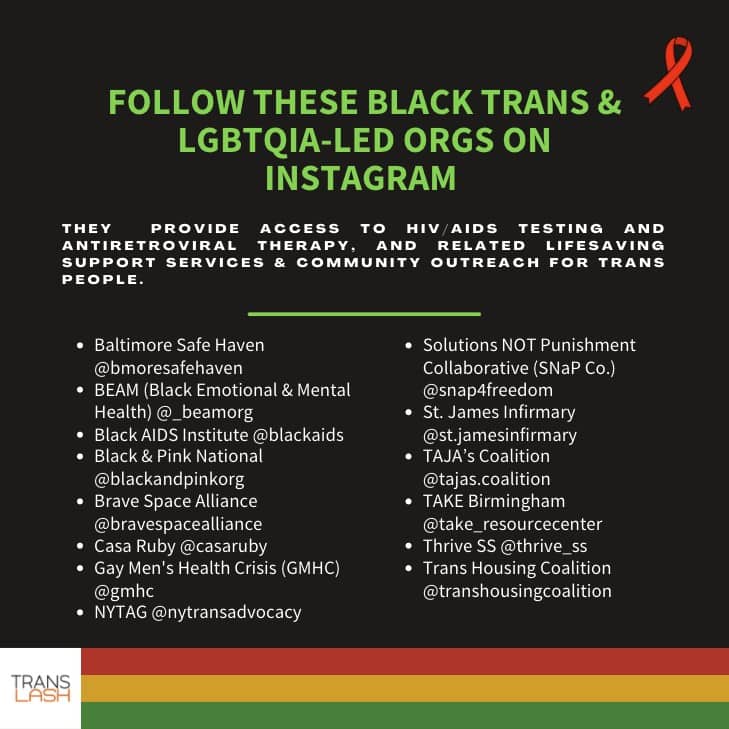
- Baltimore Safe Haven: Baltimore’s only trans-led drop-in wellness center.
- BEAM (Black Emotional & Mental Health): A movement dedicated to creating a world where there are no barriers to Black healing.
- Black AIDS Institute: Mission: End HIV in Black communities.
- Black & Pink National: National org fighting alongside incarcerated LGBTQ+ people and people living with HIV/AIDS for #prison #abolition.
- Brave Space Alliance: Brave Space Alliance is the first Black-led, trans-led LGBTQ+ Center working on the South Side of Chicago.
- Gay Men’s Health Crisis (GMHC): HIV/AIDS organization that offers a diverse roster of services for all individuals. @gmhc
- NY Transgender Advocacy Group (NYTAG): A Black trans-led nonprofit that fights for inclusive TGNC policies in NY State, and provides TGNC trainings and events for the community.
- Solutions NOT Punishment Collaborative (SNaP Co.): A Black trans and queer-led org based in Atlanta. @snap4freedom
- St. James Infirmary: A peer-based occupational health clinic for sex workers. Unfortunately, they closed their clinic in 2023.
- TAJA’s Coalition: The Transgender Advocates for Justice and Accountability (TAJAs) Coalition was founded in response to the brutal murder of Taja DeJesus. TAJA’s program activities include Service Connection Workshops, Sexual Orientation and Gender Identity Training, and Service Linkage (performs weekly check-ins with its enrolled participants). The Coalition has established formal partnerships with the Department of Homelessness and Supportive Housing Services (the largest community housing agency in San Francisco) in order to increase access for trans people and to train their 1000+ housing team.
- TAKE Birmingham: TAKE (Transgender Advocates Knowledgeable Empowering) provide supportive services for trans women of color to help improve their quality of life.
- Thrive SS: Building support networks for people living with HIV across the country.
- Trans Housing Coalition: A trans-led and founded organization that helps Atlanta’s chronically homeless trans & GNC population move from the streets into housing.
Federal & Other HIV/AIDS Resources (United States)
Recently, many HIV-related pages and resources that were once available through the Centers for Disease Control and Prevention (CDC) have been quietly removed or significantly reduced. These pages provided essential information on:
- Where to get free or low-cost HIV testing
- How to access PrEP (a daily pill that prevents HIV)
- HIV treatment options and U=U (Undetectable = Untransmittable) facts
- Data on how HIV impacts marginalized communities, including Black LGBTQ+ people
Without these resources, people looking for lifesaving information—especially those most at risk—are left in the dark.
We encourage our community use Black-led and LGBTQ+ HIV resources (listed above and below) instead of relying on government sites.
- Learn about the National HIV/AIDS Strategy.
- Check out the Ready Set PrEP program offering free PrEP to eligible patients.
- POZ Magazine: POZ is an award-winning print and online brand for people living with and affected by HIV/AIDS. Its website, POZ.com, has daily HIV/AIDS news, treatment information, forums, blogs, and personals. Follow on Instagram: @pozmagazine
- History of Black Trans Women in the HIV/AIDS Narrative, African American AIDS History Project
- TransLash Guide: HIV Vaccine Awareness Day
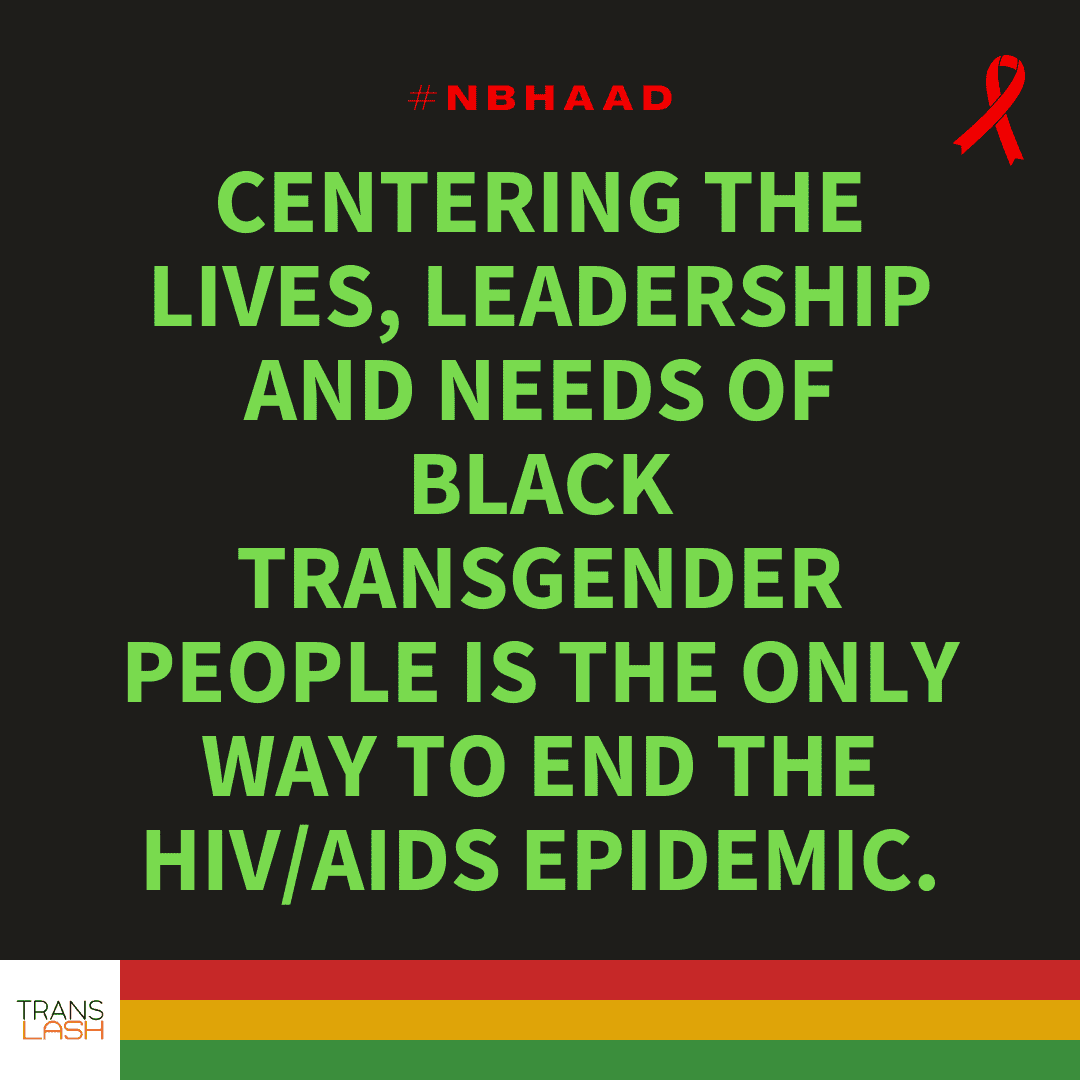
Did you find this resource helpful? Consider supporting TransLash today with a tax-deductible donation.